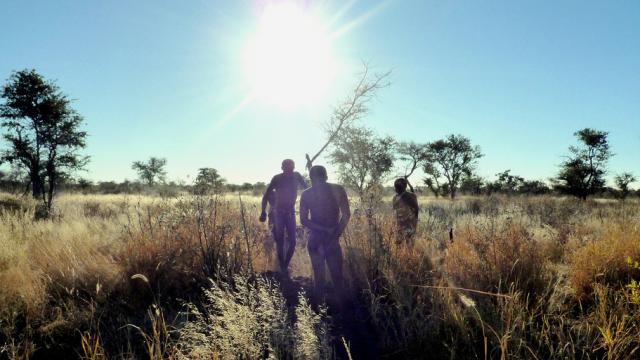It’s often said that smartphones, TV and electric lighting all contribute to us sleeping worse than our ancestors. But a new study suggests that groups in rural communities in Africa and South America, with lifestyles similar to our preindustrial ancestors, sleep much like we do in the Western world.
A team from the University of California in Los Angeles has studied three groups, who continue to live pre-agricultural ways of life, to assess their sleeping patterns and understand in detail how they rest. They spent time with the Hadza of northern Tanzania, the Ju/’hoansi San of the Kalahari Desert, and the Tsimané in Bolivia — all societies that subsist through hunting, gathering and a little horticulture.
The team managed to find 94 individuals from across these societies who were willing to wear devices that measured their movement and dilation of blood vessels at the surface of their skin. The latter measure is useful because blood vessels at the extremities constrict when you wake, to divert blood to the brain. The team also measured temperature and humidity in the environments where people slept.
With 1,165 days’ worth of data, the team found that the participants slept for between 5.7 and 7.1 hours a day, with an average of around 6.5 hours. That actually is at the low end of the sleep spectrum in the Western world, say the researchers. The results are published in Current Biology.
Interestingly, the team found that the participants rarely napped and in fact stayed awake after the sun went down for an average of 3.3 hours, too. That runs counter to assumptions that our ancestors went to bed in step with sundown, and makes their sleeping patterns broadly comparable to those observed in the developed world.
(If you’re interested, the researchers found that the time at which the participants went to bed was more likely to be dictated by temperature than anything else.)
There were some differences, though. There was more seasonal variation than in the the developed world, for instance, with the participants sleeping for up to an hour longer during the winter compared to our 20 minutes. They also rarely suffered from insomnia.
All told, the results suggest that our desire to clock up eight hours of sleep or more every night may be just that — a desire, rather than a necessity.
[Current Biology via The Guardian]
Top image, showing members of the Ju/’hoansi in North East Namibia, by David Barrie under Creative Commons licence.
